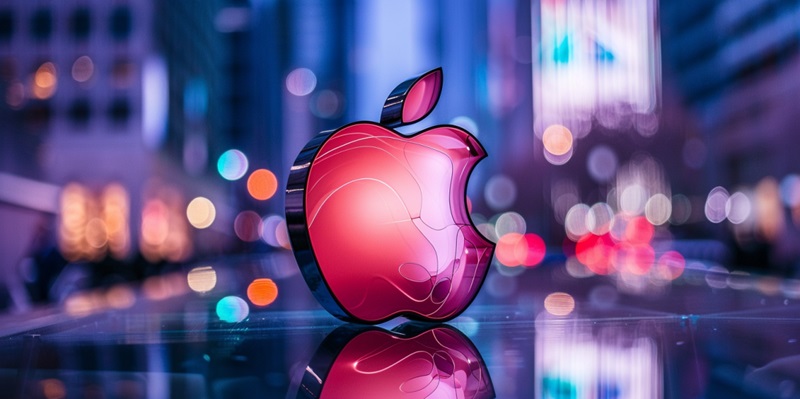Artificial intelligence is becoming an integral part of our digital experience, and Apple Inc. is at the forefront of this transformation. By incorporating AI into the iPhone, iPad, Mac, and other services, Apple is reshaping how we interact with our devices. More than just annual updates, this shift toward a more dynamic, personalized user experience is indicative of a fundamental change in the technology landscape—an AI-centric model that promises to make our tech encounters smarter and more intuitive. As we stand on the cusp of this AI renaissance within the Apple ecosystem, the question arises: how will these advancements alter our daily interactions with technology?
Apple’s AI Integration: A New Era for iPhones
With the potential release of the iPhone 16, Apple’s integration of AI features will take center stage. This rollout aims to enhance usability and create a seamless interface that predicts and caters to user needs. However, not all device owners will experience these upgrades equally; only iPhone 15 Pro model users will have access to the full gamut of AI enhancements right away. This suggests a tiered approach to innovation, pushing the envelope for those with the latest hardware while maintaining a base-level experience for older models.
The anticipation for Apple’s Worldwide Developers Conference (WWDC) is mounting, where the company is expected to unveil its advances in AI for consumer technology. As the iPhone 16 looms on the horizon, consumers eagerly await how its embedded AI will transform their experience. Will this smart tech adoption prompt a surge of upgrades from those clutching older models? With the promises of hyper-responsive assistance and less screen clutter, Apple’s proactive paradigm shift might just redefine the essence of what it means to own an iPhone.
A Shift to AI-Driven Hardware and Services
The move towards AI isn’t just limited to smartphones. Apple is preparing its iPad and Mac users for this AI awakening, with devices featuring the M1 chip or later capable of handling the new AI tasks, some of which will take place in the cloud. In doing so, Apple straddles the line between device-based and cloud-powered AI, balancing the benefits of advanced processing capabilities with its steadfast commitment to protecting user privacy and data security.
Beyond mere efficiency improvements, the integration of AI in Apple products signifies a change in the very way users interface with their tech tools. Imagine iPads that not just react, but predict your creative needs, and Macs that streamline work processes with unprecedented insight. With at least an M1 chip, these devices are poised to become not just tools but partners in the perpetual dance of productivity. And as the boundaries between hardware, software, and cloud computing blur, Apple stands at the helm, guiding us into an increasingly interconnected future.
Privacy, Cloud Computing, and the Future of Apple’s AI
As part of this AI venture, privacy remains at the forefront—Apple is no stranger to prioritizing user trust around data security. Even with the cloud’s increasing role in processing AI tasks, the company reassures customers of its commitment to privacy. Yet, the upcoming Worldwide Developers Conference (WWDC) will likely delve deeper into how Apple plans to marry cloud computing with robust security measures for an AI-enhanced future of tech.
Apple’s foray into AI presents it with a high-wire act of upholding its storied privacy standards while plunging headlong into the uncharted waters of cloud-based data processing. The tech community watches with bated breath as WWDC 2024 approaches, expected to shed light on how Apple will secure personal data in a cloud-centric AI ecosystem. This delicate balance of fostering innovation and preserving privacy is poised to become a defining narrative for Apple’s future.
Beyond Smartphones: AI’s Broad Reach Across Apple Products
Apple’s vision extends beyond the smartphone, with ambitious projects that include household robots, AR glasses, and AI-augmented health monitoring devices. Emphasizing smarter interactions and sophisticated AI, the company is setting the stage for innovations that could redefine the role of technology in daily life. These advances also underline the importance of AI for the mobility and navigation of future devices.
The prospects of an Apple home teeming with AI-infused products—from robots that handle household chores to AirPods that capture and interpret the world in new ways—are tantalizing. With each WWDC, the company unveils further steps toward this tech-infused future, igniting imaginations about what’s possible. As Apple continues to invest in advanced health sensors and AI-driven health coaches, its commitment to harnessing technology for personal well-being becomes increasingly evident.
Siri’s Makeover: The Heart of Apple’s AI Transformation
Siri, Apple’s virtual assistant, is set for a significant makeover. This redevelopment is not just cosmetic; it comes packed with enhanced cognitive capabilities spurred by AI advancements. The vision for Siri involves intuitive dialogues, refined understandings of context, and preemptive action—all with an overarching aim to streamline user-device interactions. As Siri grows more sophisticated, the very concept of a virtual assistant is evolving, transcending the reactive interactions of the past to anticipate the needs and preferences of the user. The transformation of Siri may very well be the heart of Apple’s AI revolution, bringing a renewed vigor and fluidity to the daily tech experiences of millions.

